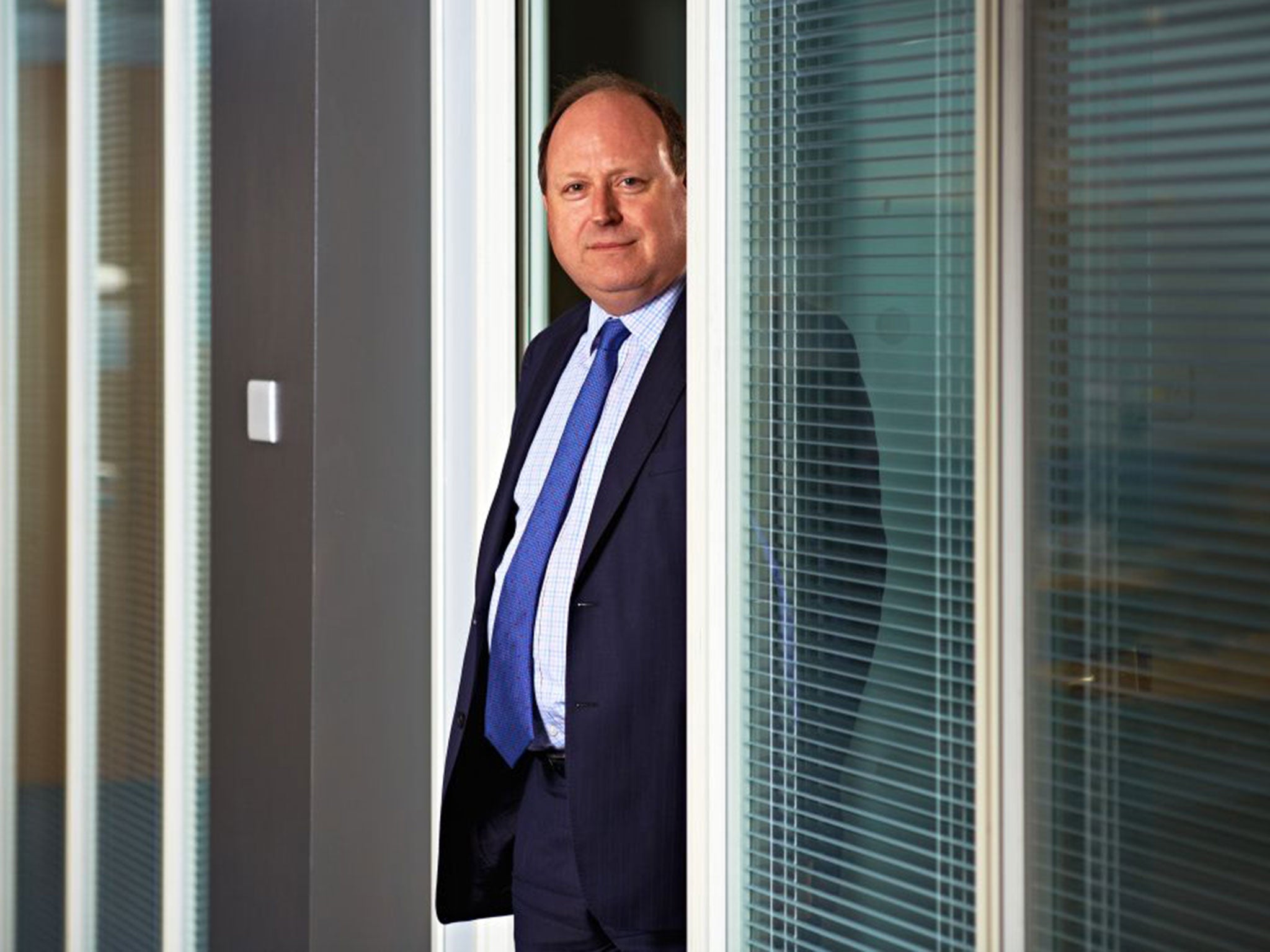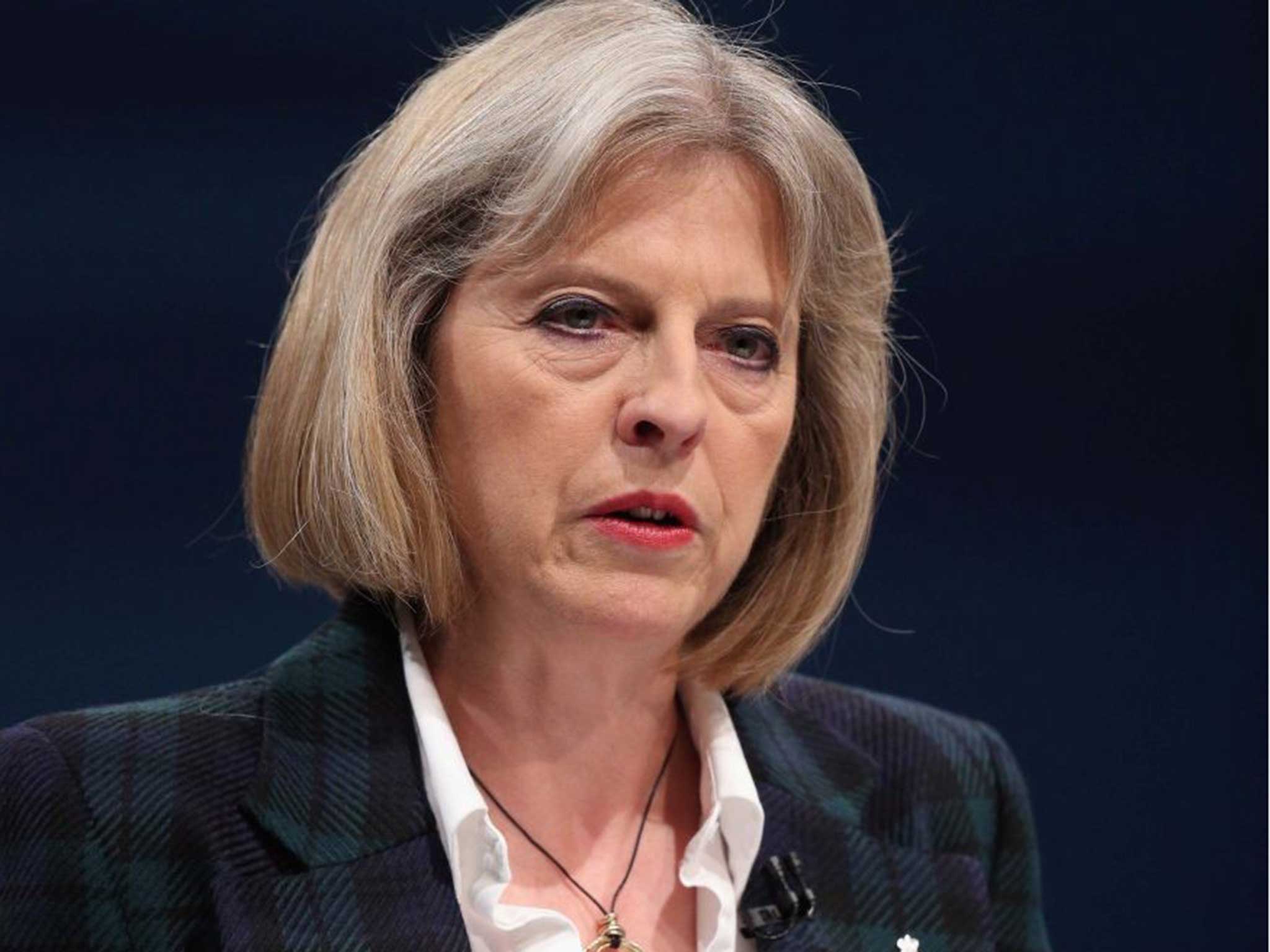John Vine: What’s gone wrong with immigration – by a man who should know
In the first in a series of interviews with the inspectors charged with overseeing Government policy, Oliver Wright meets John Vine, the outgoing watchdog who wasn’t afraid to pick a fight with Theresa May

Your support helps us to tell the story
From reproductive rights to climate change to Big Tech, The Independent is on the ground when the story is developing. Whether it's investigating the financials of Elon Musk's pro-Trump PAC or producing our latest documentary, 'The A Word', which shines a light on the American women fighting for reproductive rights, we know how important it is to parse out the facts from the messaging.
At such a critical moment in US history, we need reporters on the ground. Your donation allows us to keep sending journalists to speak to both sides of the story.
The Independent is trusted by Americans across the entire political spectrum. And unlike many other quality news outlets, we choose not to lock Americans out of our reporting and analysis with paywalls. We believe quality journalism should be available to everyone, paid for by those who can afford it.
Your support makes all the difference.When the Home Secretary Jacqui Smith appointed a man called John Vine to become Britain’s first inspector of borders and immigration in 2008, the announcement barely registered.
If anyone had heard of Mr Vine before then it was probably as the man who “locked down” eight world leaders, including Tony Blair and George Bush, at the Gleneagles Summit in 2005 when the 7 July bombs went off in London.
At that time he was chief constable of Tayside Police. But when he stepped down after 27 years as a policeman to take up his new role, there were no expectations that either he or his new inspectorate could make a difference to one of Britain’s most dysfunctional areas of government. He had to start from scratch with just a phone and a desk in an anonymous Whitehall office. The rest was up to him.
Six years on and Mr Vine’s impact has been considerable. He has moulded the Borders Inspectorate into a watchdog that is feared (and sometimes loathed) by the Home Office and, in particular, the Home Secretary. He has exposed the gaping flaws in Britain’s immigration system: from failures in border controls that led to half a million people coming into the UK unchecked, to a missing 150,000 migrants who were refused permission to stay in the UK but were subsequently “lost” by the authorities.
He has revealed the unnecessarily unpleasant treatment of asylum-seekers – criticising immigration staff for “routine” dawn raids and their failure to make timely and correct decisions on leave to remain.
He has also overseen a radical overhaul of Britain’s visa service overseas that routinely made arbitrary and discriminatory calls on who could come to Britain and who could not – damaging business and the reputation of the country. Such has been his impact that last year the UK Borders Agency was abolished altogether after Theresa May decided that it was unfit for purpose – the evidence was in Mr Vine’s reports.
Last week, when Mr Vine announced that he was stepping down early, his early departure was reported by almost every national newspaper. Not one reported on his appointment.
“I think it’s very difficult for people to understand immigration,” Mr Vine said in his first interview since his announcement. “It has now become very political and is a toxic mix of issues rather than just being about migration.
“It has connotations around national security, about tackling organised crime and preventing terrorism. I have a mission to put information into the public domain that helps people understand the complexity of the issues.”
When you meet Mr Vine he is, inescapably, a former policemen: the way he holds himself, the methodical way in which he talks. And it is quite possible that, when he was appointed, the mandarins in charge of the recruitment process thought they had hired an insider who would not rock the boat too much. But they overlooked the fact that he was trained as a lawyer and has approached the job as both an advocate and an investigator.
“Right from the outset I was keen to establish my independence from the Home Office,” he says. “That has been the key to having the influence. I used to go to conferences and they’d give me a UK Border Agency badge. I had to say, ‘I’m not going to wear this badge. Write me another badge.’
“But your reputation stands and falls over what you actually produce and what impact it has. Over the last six years I am very proud of the fact that we have had a tremendous amount of influence. I think we have been the catalyst for a lot of improvements.”
He then adds: “But it has been quite a difficult task.”
It is quite clear that a lot of Mr Vine’s reports have been shaped by the experience of those people at the sharp end of the immigration system: asylum-seekers and economic migrants who come to Britain for a better life. Asked if he thinks they have a “cushy” life, as claimed in some quarters, Mr Vine is reticent, but it is seems clear where his sympathies lie.
“I meet a lot asylum-seekers and they always appear to me to be genuinely people who are fleeing persecution and deserve to be treated appropriately,” he says. “I don’t think they have a cushy life. Very often they rely upon the support of friends and families. My job is ensure that the Home Office treats those applicants properly, fairly and in accordance with the law.
“Clearly there are people who are economic migrants and want a better life in the UK and may claim asylum as a way of achieving that. Again, those people deserve to be treated fairly and within the law. My job is to ensure that the Home Office does that and if they are refused asylum – again they are treated with respect.”

While the UK Borders Agency was technically independent, it was easier to blame problems on the bureaucrats. But after Ms May took the decision to abolish it last year and bring it back within the Home Office, she now gets the flack when things go wrong. And Mr Vine believes the system is still beset by problems. Poor management, lax record-keeping and inconstant decision-making is hampering attempts to improve the service, he says – arguing that senior Home Office civil servants should be put on the front line to help.
“There needs to be an improvement in leadership and management skills, particularly in the middle tiers who are going to ensure that the standards imposed from the top are applied,” he says.
“One of the things that really concerns me is that we keep coming across a lack of quality assurance. Standards have been requested but line managers don’t ensure case workers are working to that standard.”
His forthright reports have, at times, brought him into conflict with the Home Office. And in a rather Kafkaesque attempt to control Mr Vine, Ms May insisted that the Home Office should be responsible for deciding when and how the inspectorate’s reports were published. Some of his reports was delayed for months and then released en masse to bury the bad news. Last year 15 passages were redacted from a study on Calais border controls, including the number of illegal migrants sneaking into Britain on Eurostar trains.
Mr Vine insists this is nothing to do with his departure. He believes his job will become increasingly hard in the run-up to 2015 and would rather leave early (he was due to go in July next year anyway) to give time for his successor to bed in before the next election.
Asked about Ms May’s control of timing the release of his reports, he replies diplomatically: “That’s a good thing in terms of ensuring that parliamentarians see what recommendations are being made. I had some reservations about that and I expressed them to her because I thought the system we had worked pretty well for five years. But that’s a matter for her.”
As for what’s next, Mr Vine says he is looking for a “new challenge” but hints that he is interested in using his new freedom to take a more active role in the political debate around immigration.
Asked about the controversy surrounding the Government’s immigration vans he says, “It’s important that I don’t engage in that wider debate”. But then he smiles and tantalisingly adds: “Certainly as long as I remain as the independent chief inspector.”
Join our commenting forum
Join thought-provoking conversations, follow other Independent readers and see their replies
Comments